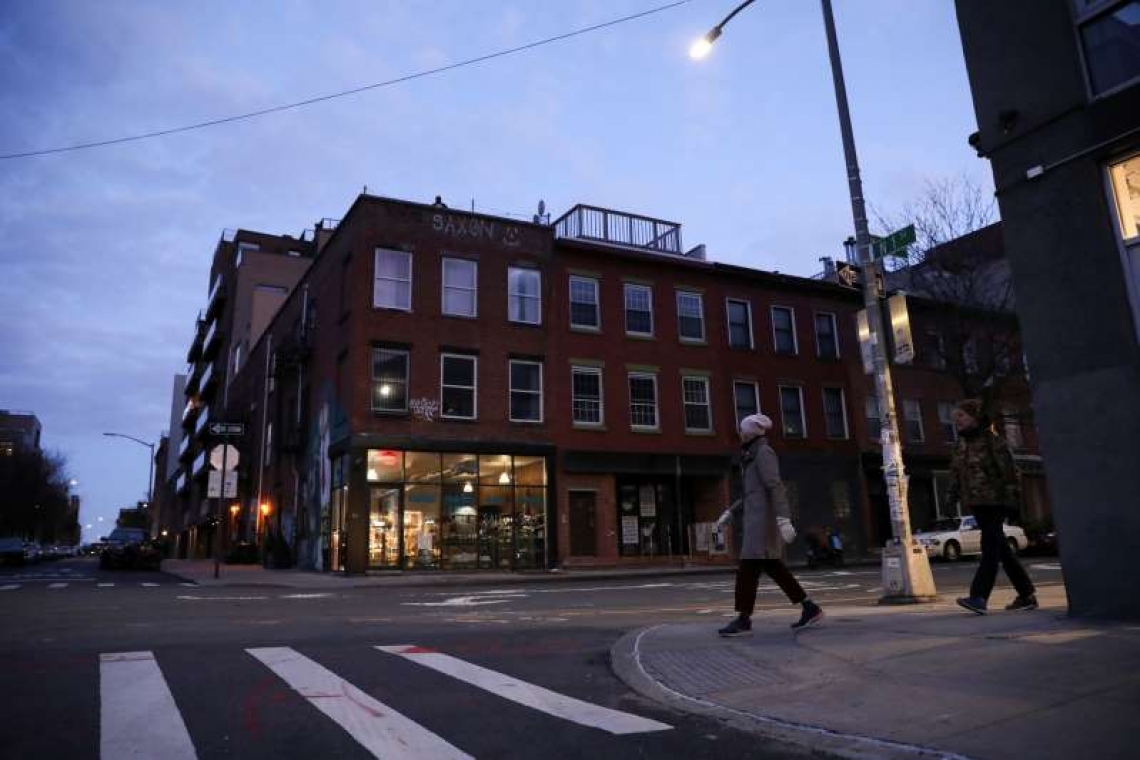© REUTERS/Caitlin Ochs Pedestrians listen as DJ and event producer Nash Petrovic live streams a set from his roof during the outbreak of coronavirus disease (COVID-19) in Brooklyn, New York, U.S., March 21, 2020. REUTERS/Caitlin Ochs
New York Governor Andrew Cuomo said Saturday morning that the number of coronavirus cases in the state has increased by more than 3,000 and now tops 10,000.
The state has conducted 45,437 tests, he said, and now has a total of 10,356 coronavirus cases. "The more tests you take, the more positives you find," he said, adding that New York is now conducting more tests per capita than China or South Korea.
The governor also said that because the federal government on Friday declared New York a "major disaster" the state is eligible for Federal Emergency Management Agency (FEMA) aid. He said FEMA is now helping to get temporary hospitals up and running in the state.
New York City alone has 6,211 cases, an increase of 1,800. Case number increases are slowing in Westchester County while they are growing on Long Island. The state's rate of hospitalization is now 15 percent of coronavirus cases, the governor said.
Cuomo said the state anticipates that between 40 and 80 percent of New Yorkers will be infected with coronavirus, however, authorities hope to spread out the rate of infection in order to not overwhelm the state's health system. State officials are meanwhile "literally scouring the globe" for additional medical supplies, he said.
In the effort to slow the spread of the virus, the governor on Friday announced an executive order calling for all nonessential businesses to cease work outside the home. He also put new requirements in place for all New Yorkers. “Your actions can affect my health, that is where we are," Cuomo said Friday.
Nonessential businesses, which had been reduced to partial workforces, were ordered to cease work. Restrictions will be enforced with civil fines and mandatory closures of businesses not in compliance.
In addition, vulnerable people — those over 70 or with underlying health conditions — must follow a set of rules, including staying inside their homes except for solitary exercise and avoiding public transportation.
All New Yorkers are also required to practice careful social distancing, staying at home as much as possible.







